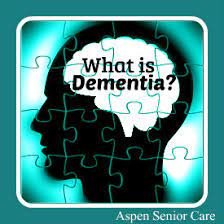What is Dementia?
Dementia is a loss of mental ability that affects people's daily functioning. It can be caused by a number of different diseases and conditions, including Alzheimer's disease, Parkinson's disease and stroke. It can affect your memory, language skills and reasoning abilities - the things that make you who you are. While some people with dementia might experience all types of problems at once (this is known as multi-faceted), others may only have one area affected.
The Impact of Dementia
Dementia is a progressive condition that affects memory, thinking and behavior. It's caused by damage to brain cells, which can't be reversed. As dementia progresses, it becomes more difficult for people with the disease to carry out everyday tasks like bathing or cooking.
The physical impact of dementia includes difficulty walking; muscle weakness; problems swallowing food and liquids; confusion about time or place; mood swings; loss of balance when sitting up in bed (or rising from sitting position); loss of bladder control (incontinence). Cognitive impairment may cause problems with speech comprehension, reading and writing skills as well as difficulties understanding what others say if they speak quickly or use unfamiliar words.
Risk Factors and Prevention
Genetic and environmental risk factors
Dementia is a disease of the brain, so it's not surprising that genetics can play a role in its development. A family history of dementia increases your risk for developing the condition. If you have an immediate relative with Alzheimer's disease or another form of dementia, such as vascular or frontotemporal degeneration (FTD), your risk increases by 2 to 3 times compared to those who do not have this family history.[1]
Research has also shown that certain lifestyle choices may increase your chances of developing dementia later in life. For example:
Smoking cigarettes increases your chances by about 30%.[2]
High blood pressure doubles the chance that you'll develop Alzheimer's disease or another type of cognitive impairment.[3]
Obesity raises your risk by 60%.[4]
Diagnosis and Treatment
Diagnostic tests for dementia
Treatment options
Potential medications
The role of caregivers
Living with Dementia
Living with dementia is a challenge for both the person who has it and their family. It's important to remember that you are not alone, and there are many ways to cope with the changes in your life.
Talk about your feelings with others who understand what you're going through.
Take time each day just for yourself--it's important not only for your physical health but also for your mental well-being!
Learn as much as possible about dementia so that when someone asks how they can help out around the house or offer advice on how best to handle certain situations (such as arguing), you'll be able to provide them with accurate information instead of making things worse by saying something inappropriate or insensitive.*
Caring for a Loved One with Dementia
If you're caring for a loved one with dementia, here are some tips and resources that can help:
Understand the challenges. Dementia is a progressive condition that affects memory, thinking, language and behavior. As it progresses, it can cause confusion and make it difficult to do everyday tasks.
Explore available resources. There are many resources available to help people with dementia live well at home or in an assisted living facility. You may want to consider hiring a professional caregiver who will provide companionship or other services such as meal preparation or transportation; joining support groups; using technology such as apps on your phone that remind you when tasks need done; getting involved in community programs like day programs at senior centers; asking family members if they'd be willing to take turns visiting regularly (this can reduce feelings of isolation).
Financial Planning for Dementia
Creating a financial plan for dementia is crucial, especially if you are caring for someone who has been diagnosed with the disease. You may need to consider how your loved one's care will be financed and how much it will cost.
You should also be aware of how insurance policies can help cover some of these expenses, including long-term care or assisted living facilities. Your policy may have limitations on what it covers and whether or not there are any deductibles that must be met before benefits kick in.
If you're concerned about how much money will be available when the time comes for your loved one to enter into an assisted living facility or nursing home, talk with an elder law attorney about setting up a special needs trust so that funds set aside from their assets can go toward paying those bills instead of going straight into government coffers (where they would otherwise go).
As you can see, dementia is a complex condition that can affect people in many ways. It's important to understand that while there are many similarities across countries and cultures, dementia is still unique to each individual. Understanding this disease will help us better support people with dementia and their families by improving our understanding of how they experience the world around them

